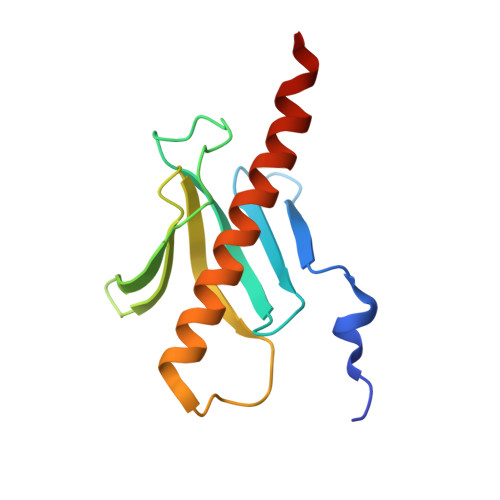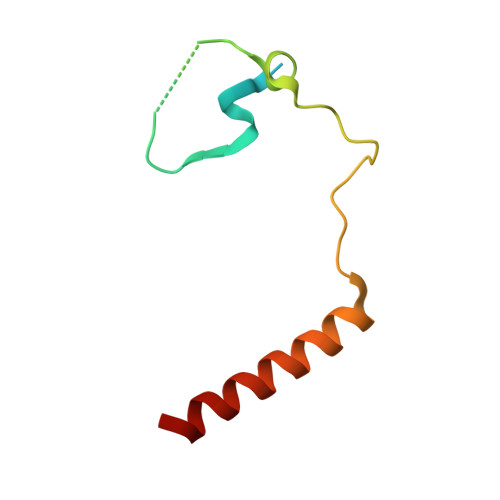Inhibition of CRISPR-Cas9 ribonucleoprotein complex assembly by anti-CRISPR AcrIIC2.
Thavalingam, A., Cheng, Z., Garcia, B., Huang, X., Shah, M., Sun, W., Wang, M., Harrington, L., Hwang, S., Hidalgo-Reyes, Y., Sontheimer, E.J., Doudna, J., Davidson, A.R., Moraes, T.F., Wang, Y., Maxwell, K.L.(2019) Nat Commun 10: 2806-2806
- PubMed: 31243272
- DOI: https://doi.org/10.1038/s41467-019-10577-3
- Primary Citation of Related Structures:
6JD7, 6JDJ, 6JDX, 6N05 - PubMed Abstract:
CRISPR-Cas adaptive immune systems function to protect bacteria from invasion by foreign genetic elements. The CRISPR-Cas9 system has been widely adopted as a powerful genome-editing tool, and phage-encoded inhibitors, known as anti-CRISPRs, offer a means of regulating its activity. Here, we report the crystal structures of anti-CRISPR protein AcrIIC2 Nme alone and in complex with Nme1Cas9. We demonstrate that AcrIIC2 Nme inhibits Cas9 through interactions with the positively charged bridge helix, thereby preventing sgRNA loading. In vivo phage plaque assays and in vitro DNA cleavage assays show that AcrIIC2 Nme mediates its activity through a large electronegative surface. This work shows that anti-CRISPR activity can be mediated through the inhibition of Cas9 complex assembly.
Organizational Affiliation:
Department of Biochemistry, University of Toronto, 661 University Avenue, Suite 1600, Toronto, ON, M5G 1M1, Canada.















